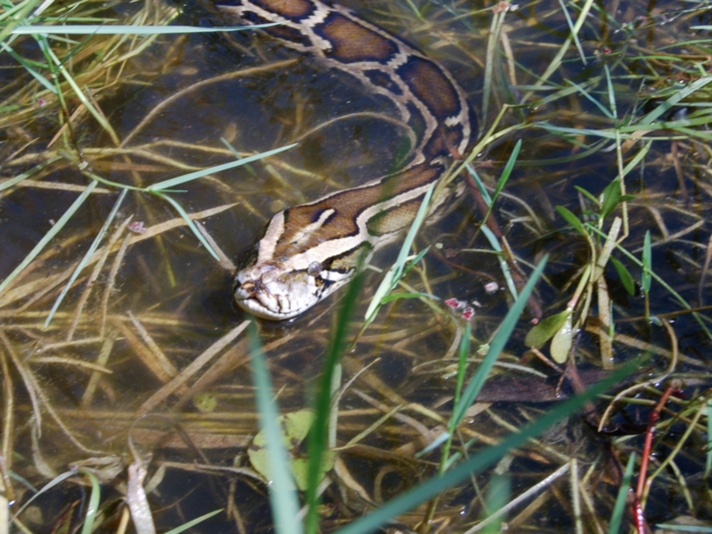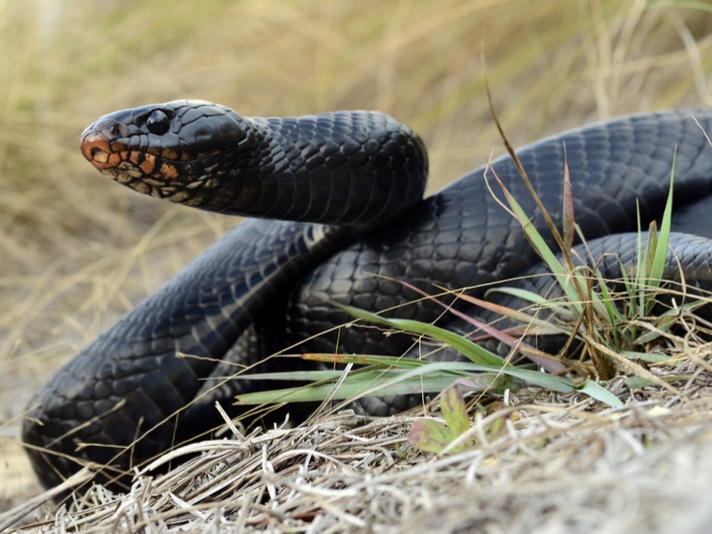Florida native snakes infected with the snake lungworm include black racers, eastern coachwhips, pygmy rattlesnakes, and Eastern Indigo snakes, among others
The Asian lungworm Raillietiella orientalis, has found its way, via the invasive Burmese python (Python bivittatus), into Florida-native snakes and is wreaking havoc on several of the state’s 46 native snake species, 36 of which are native to South Florida where the Burmese python is established.
Florida native snakes infected with the snake lungworm include black racers (Coluber constrictor), eastern coachwhips (Masticophis flagellum), pygmy rattlesnakes (Sistrurus miliarius) and Eastern Indigo snakes (Drymarchon couperi), among others, and all species that are known to eat other snakes, including hatchling and juvenile Burmese pythons.
Researcher and Ph.D student Jenna Palmisano of the University of Central Florida, told Fox 13 that the parasite likely arrived via the Burmese python and other invasive species that are established in their Sunshine State. “Around 2012 is when we started seeing it in native snakes in South Florida,” she said.
Asian Parasites Found In Burmese Pythons Killing Native Florida Snakes
Florida’s Invasive Burmese Pythons Spreading Disease To Native Snakes, Study Says
Palmisano then created the Snake Lungworm Alliance and Monitoring system, which is comprised of researchers, land managers, local government and citizen scientists who work collaboratively to conduct surveillance of Raillietiella orientalis, or snake lungworm across the Southern United States. Since its inception in 2022, SLAM has identified 13 counties in which the Raillietiella orientalis has been detected. The parasite has been detected in 27 counties by other entities.
Palmisano notes that the snake lungworm is contributing to the decline of local snake populations, an important distinction in that these reptiles are both predator and prey in Florida’s ecosystem.

Burmese python. HEIKO KIERA/SHUTTERSTOCK
“The snakes serve as both predators and prey, and so they’re important for our populations of birds of prey and controlling our lizard and amphibian populations,” Palmisano told Fox 13.
Part of the reporting process involves those in the field to report when they see the snake lungworm in snakes. And especially important is those who are capturing wild caught snakes and selling them.
“If you are intending to sell wild caught snakes, take them to a vet or someone else who can test them for the parasite, so you know you’re not shipping this animal wherever you’re shipping it, and it has pathogens, especially this invasive lungworm,” Palmisano said.
In addition to snakes, Raillietiella orientalis can infect other species during the course of its life cycle. Fishes, amphibians, and mammals can serve as intermediate hosts of the parasite and can then infect snakes that eat these organisms.
If you are out field herping in Florida and happen upon dead snakes with parasites, you can report it to SLAM at https://www.eddmaps.org/report/



